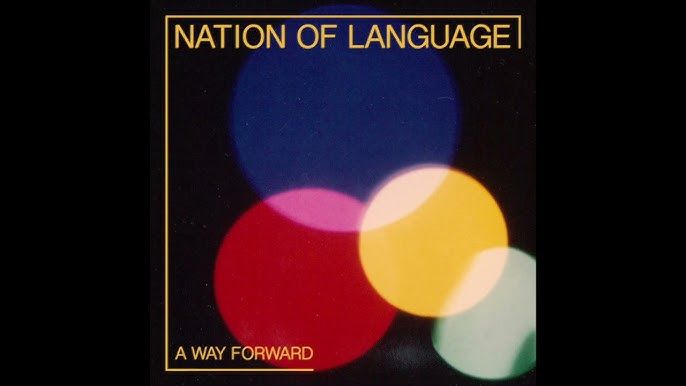By Dylan McNally, First Year History
Nation of Language had the unenviable task of releasing their debut album, Introduction, Presence at the height of the pandemic. Despite this, it proved to be a success especially among indie circles, yet as a result didn’t really feel like an album. Rather, it felt like a collection of singles, their best songs compiled together. A Way Forward is a step forward in this regard, with the band retaining their signature 80s inspired, synth-driven sound, but being more considerate and structured-this feels like an album. This is not to say that there aren’t stand out moments, simply that on the whole it feels more thoughtful.
The opener, ‘In Manhattan’, is slowly built up over a repeating arpeggio, giving the band a chance to really draw you into their world of synths. The climax you expect never quite arrives, but this doesn’t leave a sense of dissatisfaction, rather a sense of excitement and anticipation. And what comes next is one of the standout individual moments on the album. ‘Across That Fine Line’ is much quicker, and if there wasn’t a sense of release on ‘In Manhattan’, there certainly is here with Ian Devaney’s voice allowed to flourish accompanied by atmospheric synths and a melodic bassline.
The album flows from here on in, through the sweet malaise of ‘Wounds of Love’ and into the moving ‘Miranda’, with its swirling, changing parts making it one of the most interesting songs on the album; by the end, the traditional synths make way for a piano, almost reminiscent of parts Bon Iver’s self-titled album, with this change of pace making it one of the more emotional songs on here.
‘The Grey Commute’ is a slight change sound-wise, evoking the War on Drugs and takes a different direction lyrically. As opposed to the tales of love, loss and emotions, it is a direct critique of unfettered capitalism. It also happens to be some of the best song writing that Nation of Language has produced. The message is clear with lines such as ‘consume and collapse/its violence, violence’, and whilst the song may feel like an ode to desperation in a capitalist hellscape, there is some hope provided by the end: ‘And there’s a foot on your throat/That you’re fighting to undermine/There’s gonna come a time/They’ll get what they’re owed’. So, it’s not all desperation and fear then-isn’t that nice?
And if ‘The Grey Commute’ is so clearly an attack on capitalism, what follows can be seen as the consequences of capitalism. ‘This Fractured Mind’ may be a self-critique from Devaney, but lines like “But I want to find meaning, motion” sound like desperation from a man who knows this is ultimately unachievable. This might be a bit of a stretch, but regardless, what’s undeniable is just how good it is. Falling back onto their more traditional synth-pop formula, it is surprising that this wasn’t the lead single (that honour instead goes to ‘Across That Fine Line’), the song is the closest to the sound of Introduction, Presence; bright on an album that seems to want to move away from that. This slight contrast then allows for a richer album as a whole. Where previously, they stuck rigidly to a sound, here it is more fluid whilst losing none of their song writing nous.
The rest of the album adds to this, the final three tracks may not be single-worthy, but do not take this as a criticism, instead, it is a necessary aspect of this album, and a show of progress. It is clear that Nation of Language have put greater thought into the album as a whole, as opposed to only their songs. They have utilised the album as an artform in its own right.
Whilst they remain inspired by the likes of OMD and New Order, on A Way Forward, Nation of Language’s sound has expanded. It is then, not only a way forward, but a step in the right direction-a more thoughtful piece, focusing on the whole rather than its individual parts. It will be interesting to see what the band do next-there have been no significant left turns on this album and there is potentially a chance that their sound could stagnate in the future. But for now, there is enough change to keep things interesting whilst adhering to their core sound and influences. As a result, and despite its short life so far, it surely must be a contender for album of the year. Whilst the 80s ended 30 or so years ago, it’s clear that its spirit spectacularly lives on with Nation of Language. The 80s are dead, long live the 80s.
Featured image: PIAS
Have you heard the album?








